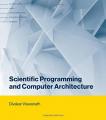
The New Software Engineering
by Sue Conger
Publisher: Global Text Project 2008
ISBN/ASIN: 0534171435
Number of pages: 403
Description:
This book discusses the software engineer's project related knowledge and theoretical background in order to facilitate and speed the process by which novices become experts. It covers project planning, project life cycles, methodologies, technologies, techniques, tools, languages, testing, ancillary technologies (e.g., database), and computer-aided software engineering (CASE). For each topic, alternatives, benefits and disadvantages are discussed.
Download or read it online for free here:
Download link
(8.2MB, PDF)
Similar books
 Software Product Line: Advanced Topic
Software Product Line: Advanced Topicby Abdelrahman Osman Elfaki - InTech
The Software Product Line (SPL) is an emerging methodology for developing software products. There are two hot issues in the SPL: modelling and the analysis of the SPL. Variability modelling techniques have been developed to assist engineers ...
(10173 views)
 Scientific Programming and Computer Architecture
Scientific Programming and Computer Architectureby Divakar Viswanath - The MIT Press
This book examines and explains a variety of scientific programming models with an emphasis on how programming constructs map to different parts of the computer's architecture. Two themes emerge: program speed and program modularity.
(6403 views)
 Function Points Analysis Training Course
Function Points Analysis Training Courseby David Longstreet - SoftwareMetrics.Com
The book introduces the basic concepts of function point analysis and unit cost estimating, describes and defines the concepts necessary to establish a boundary between applications, identifies and rates external inputs and external outputs, etc.
(15201 views)
 Software Foundations
Software Foundationsby Benjamin C. Pierce - University of Pennsylvania
These are notes for a course on software foundations, suitable for graduate or upper-level undergraduate students. They develop basic concepts of functional programming, logic, operational semantics, lambda-calculus, and static type systems.
(14086 views)